
Mental Health the Focus of KSU’s Largest Hackathon
KENNESAW, Ga. | May 22, 2024
Kennesaw State University’s Michael J. Coles College of Business recently hosted its second annual hackathon, called Apps For Wellbeing Hackathon 2.0, with a focus on fostering wellness through technology. Following the success of its inaugural event last year, which attracted 100 participants, this year's hackathon saw an even greater turnout, with approximately 150 students eager to contribute their ideas and skills.
The hackathon centered around the creation of mobile apps using the low-code development platform Mendix. These apps are aimed at addressing the pressing societal need for support in mental and physical health. This year's theme was inspired by the shortage of mental health support during the COVID-19 pandemic. By focusing on wellness, the hackathon aimed to foster innovation and accessibility, ensuring that students and young adults have access to tools for living a well-rounded and healthy lifestyle.
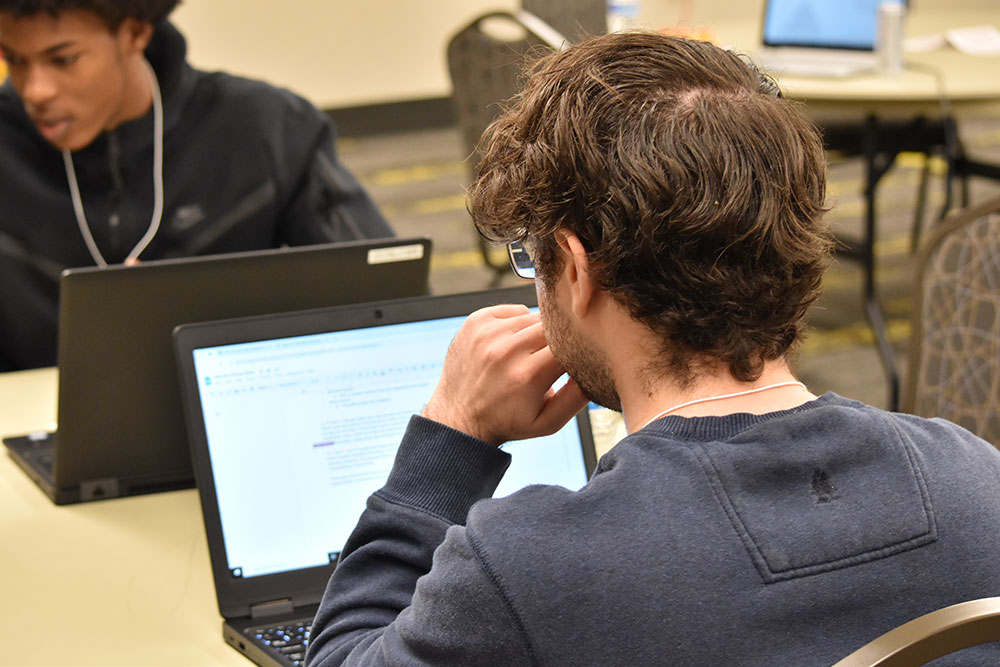
Some student projects focused on community initiatives, such as the crowd favorite WellConnect app that helps individuals find and join support groups tailored to their needs. Other teams concentrated on mental health, like the one that developed HappyApp, which allows individuals to track and manage their mood.
Dominic Thomas, associate professor of information systems, worked with IS students Jessica Harris, Amiyah Richardson, and Nina Lam to organize the event. The goal was to provide students with crucial app development skills and to establish connections that will open doors to diverse opportunities.
"Many companies find themselves lacking employees with the necessary skills to navigate their platforms," said Thomas. "This hackathon presents students with the chance to gain these skills at no cost, preparing them not only for current job opportunities but also for the future jobs."
KSU welcomed students from all majors and skill levels to participate. Whether seasoned coders or novices, everyone had the opportunity to collaborate and innovate.
One of the standout features of the hackathon was the extensive support provided to participants by organizers and sponsors. Participants received $2,500 worth of free training and certifications in Mendix, which sponsored the event. Other supporters included Equifax, Wellstar College, and CodePath.
Students had the option to work individually or in teams of 3-4, encouraging collaboration and teamwork. Throughout the event, students demonstrated their technical abilities as well as their essential soft skills such as building presentations and public speaking. The hackathon also featured an Assistive Technology Panel, highlighting the importance of accessibility concerns in both hardware and software creation.
Software industry leaders evaluated each app based on creativity, functionality, and potential impact on wellbeing, with the winning teams having the opportunity to present their projects and win prizes.
Among the 13 teams that presented, three winners were chosen by the judges. Taking 1st place was linKS, a social app designed to help students connect on campus by sharing schedules and events. This app was developed by Matai Blain, Saramyah Stewart, Saba Mabood, Cameron Colton, and Salini Ambadapudi. In 2nd place was Little Treasures, an app focused on mental health that helps users capture life's small meaningful moments, created by Dohnovan Walker and Emily Zhu. The 3rd place winner was FocusFit, an app that employs scientifically backed study intervals, developed by Henry Nguyen, Sonny Wilson, and Grant Versluis.
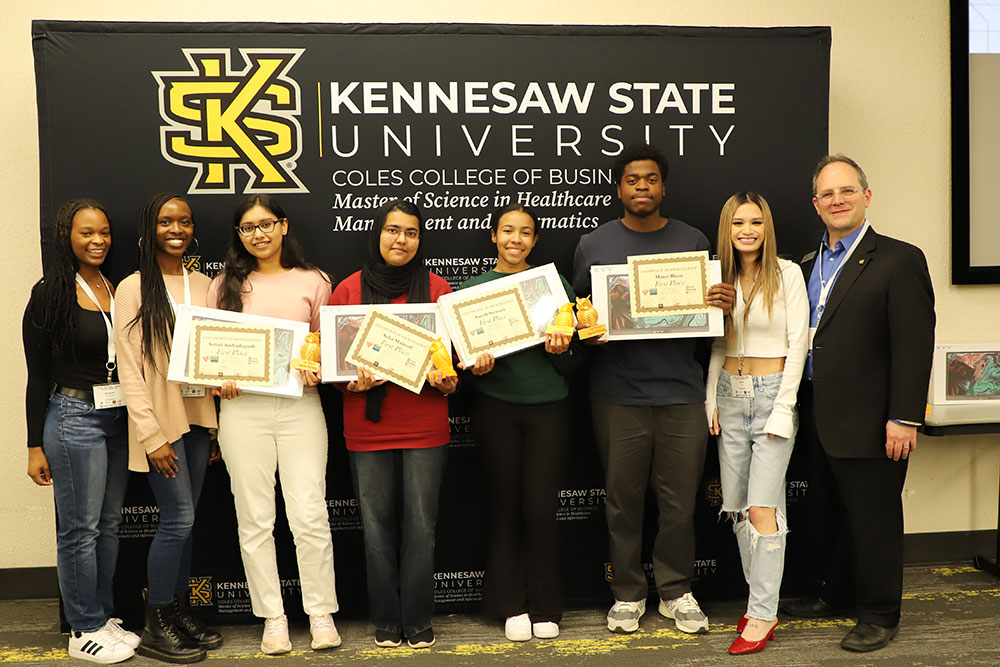
Thomas said he is happy to have taken on the role of leading this hackathon – which has become the largest on campus – because he wants students to have hands-on training in app development.
“We voted as faculty that we needed more experiential learning,” said Thomas. “It’s about engagement and initiative and competition is one of the ways we get that.”
- Daijah Sims
Related Posts
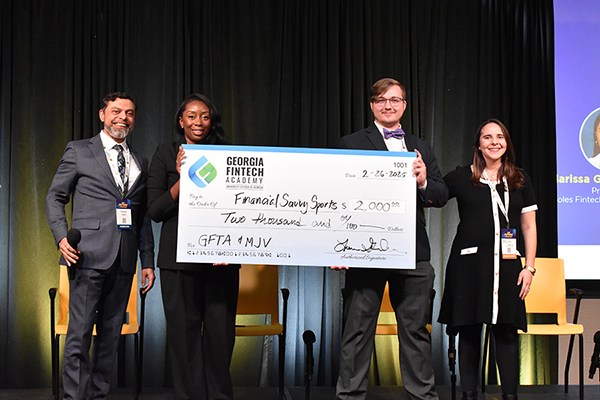
Innovative Minds Shine at KSU's Digital Payments Pitch Competition

Kennesaw State professor honored by American Accounting Association as 2025 Presidential Scholar
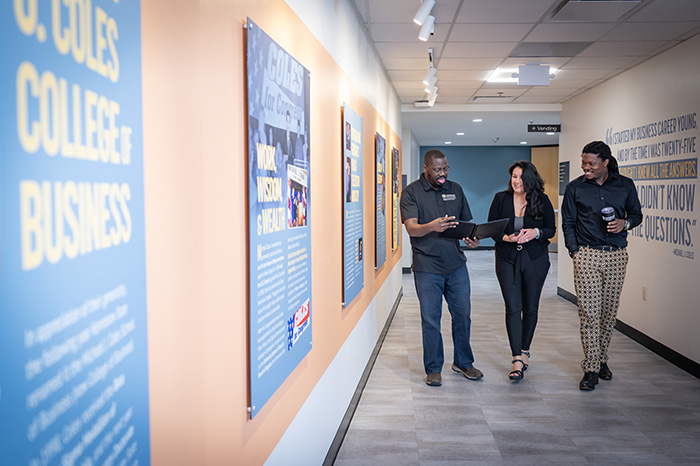
CEO Magazine Ranks Kennesaw State Executive MBA Top Program in Georgia, No. 10 in the World
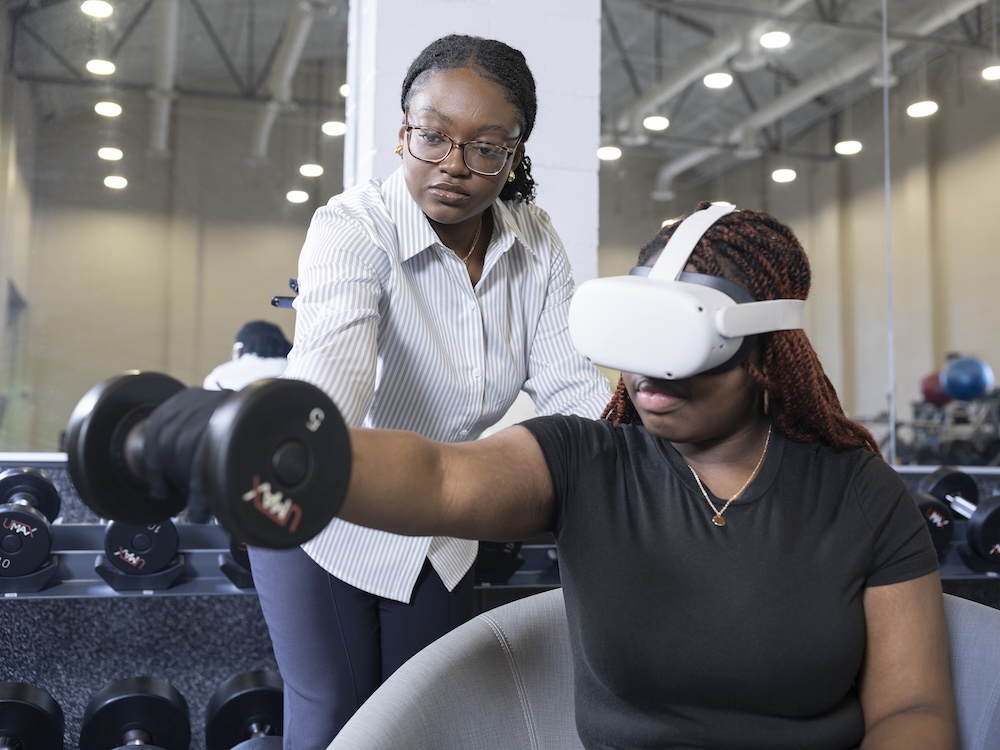
Kennesaw State business student finds research niche in virtual reality














